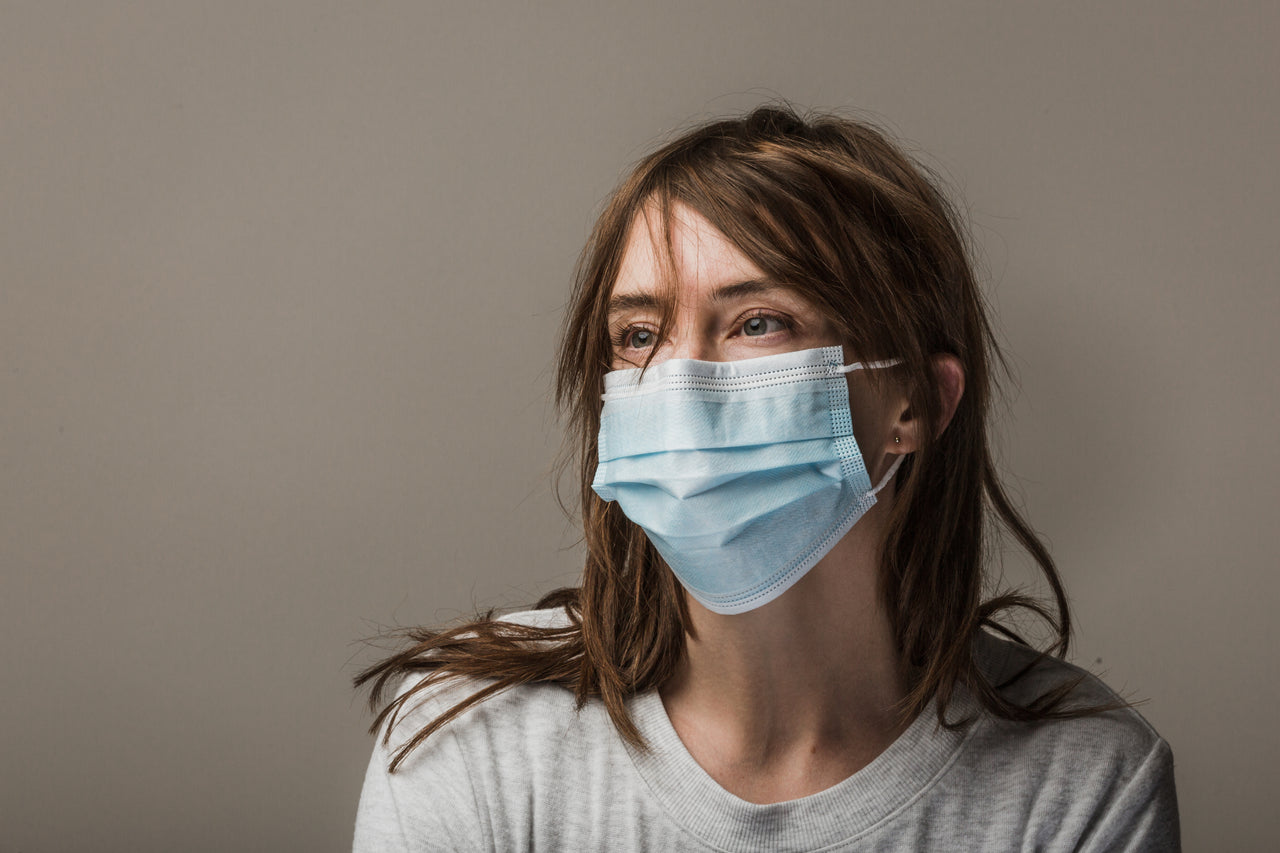Coronavirus
We are still learning about many aspects of Covid19. For example some people may have health symptoms or side effects after having COVID-19. If you or someone you know is experiencing some side effects following COVID19, you may find the below helpful.
How is coronavirus spread?
Coronavirus is spread through droplets from our nose or mouth. Wearing masks and social distancing is important to help control the spread of the virus.
What are the symptoms of coronavirus
If you are showing signs of the below symptoms you need to isolate yourself and contact your GP to arrange a coronavirus test.
Common symptoms of COVID-19
- a fever (high temperature - 38 degrees Celsius or above)
- a new cough - this can be any kind of cough, not just dry
- shortness of breath or breathing difficulties
- loss or change to your sense of smell or taste – this means you've noticed you cannot smell or taste anything, or things smell or taste different to normal
You may not have all of these symptoms. It can take up to 14 days for symptoms to show. They can be similar to symptoms of cold and flu.
An early diagnosis from your GP means you can get the help you need and avoid spreading the virus, if you have it.
Call the emergency services on 112 or 999 if you are very short of breath. For example, if you are so short of breath that you cannot complete a sentence.
((accordion-separator))Compare symptoms of COVID-19, flu and cold
Symptoms |
COVID-19Symptoms range from mild to severe |
FluAbrupt onset of symptoms |
ColdGradual onset of symptoms |
|
Fever or chills |
Common |
Common |
Rare |
|
Cough |
Common (usually dry) |
Common (usually dry) |
Mild |
|
Shortness of breath |
Common |
No |
No |
|
Lost or changed sense of smell or taste |
Common |
Rare |
Rare |
|
Fatigue |
Common |
Common |
Sometimes |
|
Aches and pains |
Common |
Common |
Common |
|
Sore throat |
Sometimes |
Sometimes |
Common |
|
Headaches |
Sometimes |
Common |
Rare |
|
Runny or stuffy nose |
Sometimes |
Sometimes |
Common |
|
Feeling sick or vomiting |
Rare |
Sometimes |
No |
|
Diarrhoea |
Rare |
Sometimes in children |
No |
|
Sneezing |
No |
No |
Common |
If you are in doubt about any symptoms you have, phone your GP. They will discuss your symptoms with you and advise you on any steps you may need to take.
((accordion-separator))When a fever could be something else
Some people may get a mild fever for a couple of days after they get the flu vaccine. This is normal.
Fever is also a symptom of meningitis.
Contact your GP straight away if you have a fever and other symptoms of meningitis: severe headache, stiff neck, sensitivity to light
((accordion-separator))-
Common symptoms of COVID-19
- a fever (high temperature - 38 degrees Celsius or above)
- a new cough - this can be any kind of cough, not just dry
- shortness of breath or breathing difficulties
- loss or change to your sense of smell or taste – this means you've noticed you cannot smell or taste anything, or things smell or taste different to normal
You may not have all of these symptoms. It can take up to 14 days for symptoms to show. They can be similar to symptoms of cold and flu.
An early diagnosis from your GP means you can get the help you need and avoid spreading the virus, if you have it.
Call the emergency services on 112 or 999 if you are very short of breath. For example, if you are so short of breath that you cannot complete a sentence.
Compare symptoms of COVID-19, flu and cold
Symptoms
COVID-19
Symptoms range from mild to severe
Flu
Abrupt onset of symptoms
Cold
Gradual onset of symptoms
Fever or chills
Common
Common
Rare
Cough
Common (usually dry)
Common (usually dry)
Mild
Shortness of breath
Common
No
No
Lost or changed sense of smell or taste
Common
Rare
Rare
Fatigue
Common
Common
Sometimes
Aches and pains
Common
Common
Common
Sore throat
Sometimes
Sometimes
Common
Headaches
Sometimes
Common
Rare
Runny or stuffy nose
Sometimes
Sometimes
Common
Feeling sick or vomiting
Rare
Sometimes
No
Diarrhoea
Rare
Sometimes in children
No
Sneezing
No
No
Common
If you are in doubt about any symptoms you have, phone your GP. They will discuss your symptoms with you and advise you on any steps you may need to take.
When a fever could be something else
Some people may get a mild fever for a couple of days after they get the flu vaccine. This is normal.
Fever is also a symptom of meningitis.
Contact your GP straight away if you have a fever and other symptoms of meningitis: severe headache, stiff neck, sensitivity to light
What are the symptoms of Long COVID?
Those with Long COVID usually experience several symptoms, which may cross over with one another and can change over time. While there are lots of different Long COVID symptoms, common symptoms can include:
Long-term effects of COVID-19
From breathlessness to joint & muscle pain, these are some of the symptoms associated with Long COVID that you need to know aboutAs the COVID-19 (coronavirus) pandemic continues we’re constantly learning new things about the virus and how it can affect everyone differently. While most people with COVID-19 recover and return to normal health fairly quickly, some people can continue to experience symptoms for weeks and months. This is a condition now commonly known as Long COVID.
What is Long COVID?
Long COVID describes the signs and symptoms of COVID-19 that continue or develop for weeks or months after the initial illness. It includes both ongoing COVID-19 symptoms (from four to 12 weeks after initial infection) and post-COVID-19 syndrome (symptoms that last for 12 weeks or more).
Research suggests that around one in five people who test positive for COVID-19 have symptoms for five weeks or longer. One in 10 people may experience symptoms that last 12 weeks or longer.

As well as physical symptoms, Long COVID can also cause feelings of depression and anxiety. Remember to speak to your GP or local LloydsPharmacy team if you’re worried about, or struggling with, any symptoms. You can also visit our mental health section for more info and contact information for our official charity partner Aware.
Can anyone with COVID-19 get Long COVID?
This one is a little tricky to answer as research is still going on. Developing Long-COVID symptoms is not thought to be linked to how severe initial COVID-19 symptoms were. It seems that even people who weren’t admitted to hospital, and who had a mild COVID-19 illness, can experience Long COVID.
As this is a new condition, there is currently no definitive answer for why the virus may cause Long COVID symptoms in some people but not in others (although there are lots of ideas).

How long does it take to recover from Long COVID?
Unfortunately, there’s currently no way to predict how long recovery from Long COVID will take. Recovery time is different for everyone and no one knows exactly how long it can last for.
Scientists across the world are working hard to find out more about what happens to people as they recover and how to help ease symptoms. If you’re worried about lasting, new or changes to your symptoms then speak with your GP.
If you have had COVID-19, you may still be coming to terms with the impact the virus has had on both your physical and mental health. The HSE has several useful articles available here to provide information and support anyone who has had a COVID-19 infection.
If you’re worried about your symptoms, or if they’re getting worse, make sure you speak to your GP.
More information
The HSE have further information available on their website. Click here to read more.
Welcome to LloydsPharmacy Ireland online. We're sorry but it seems that you are using an unsupported browser.
You can download an updated browser below. We're looking forward to your online visit.




